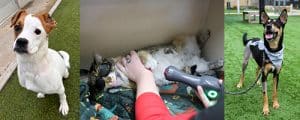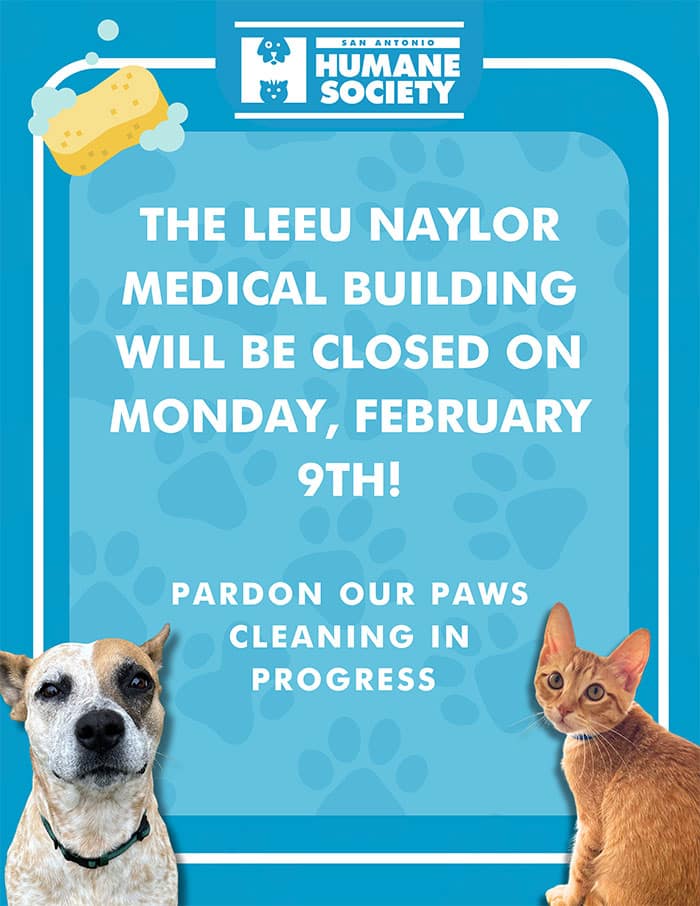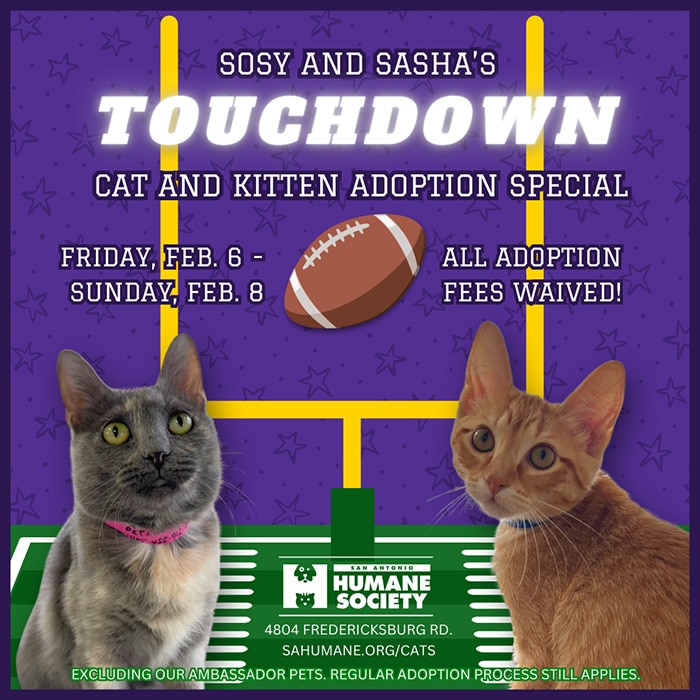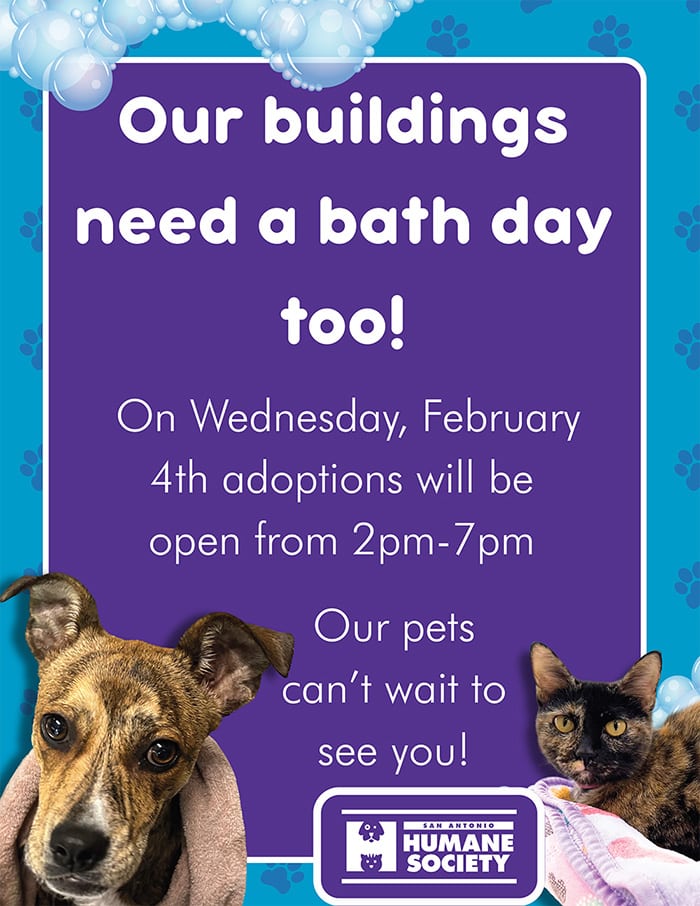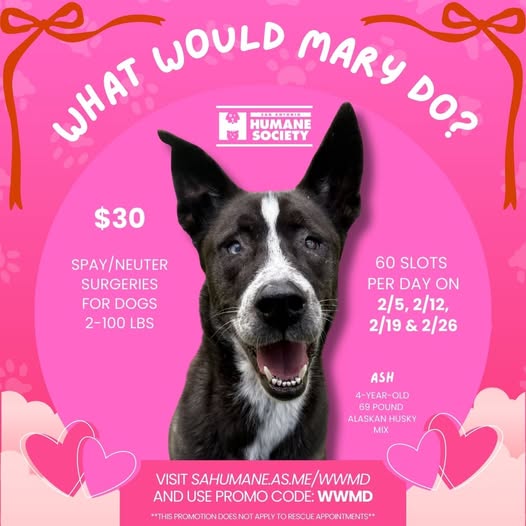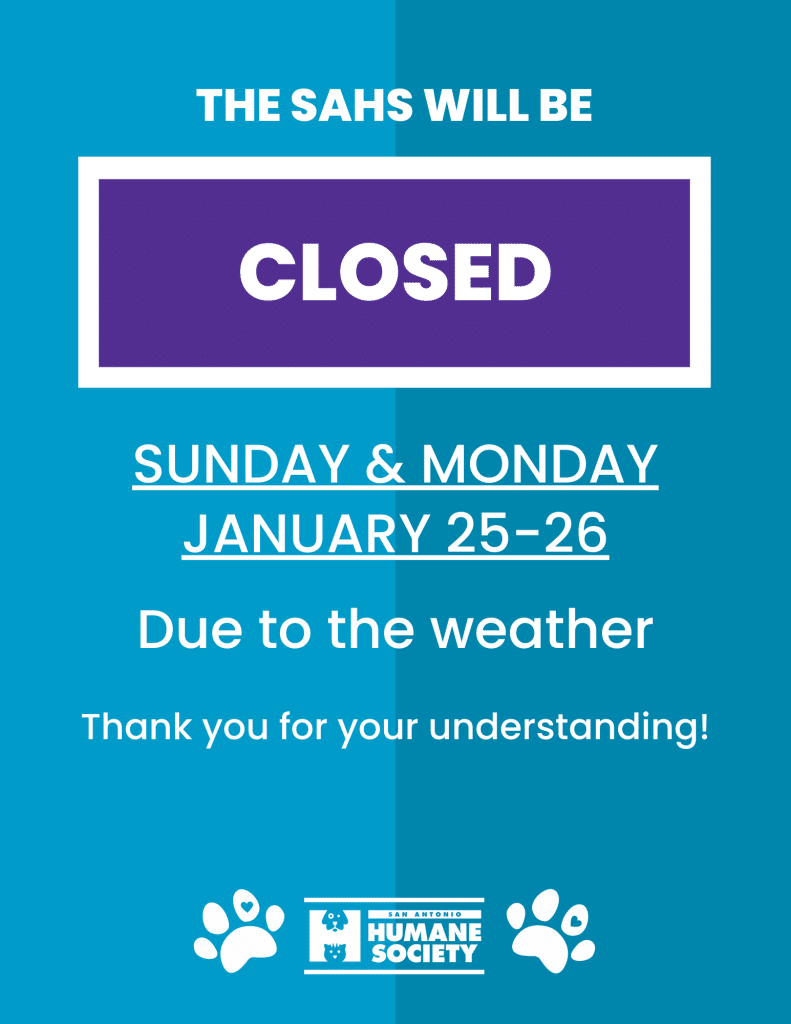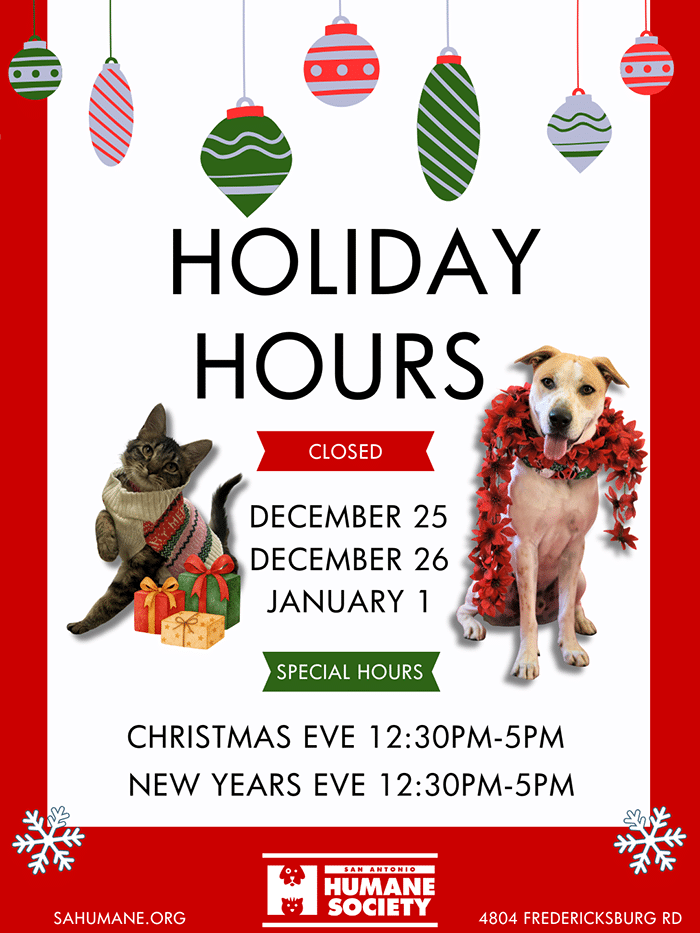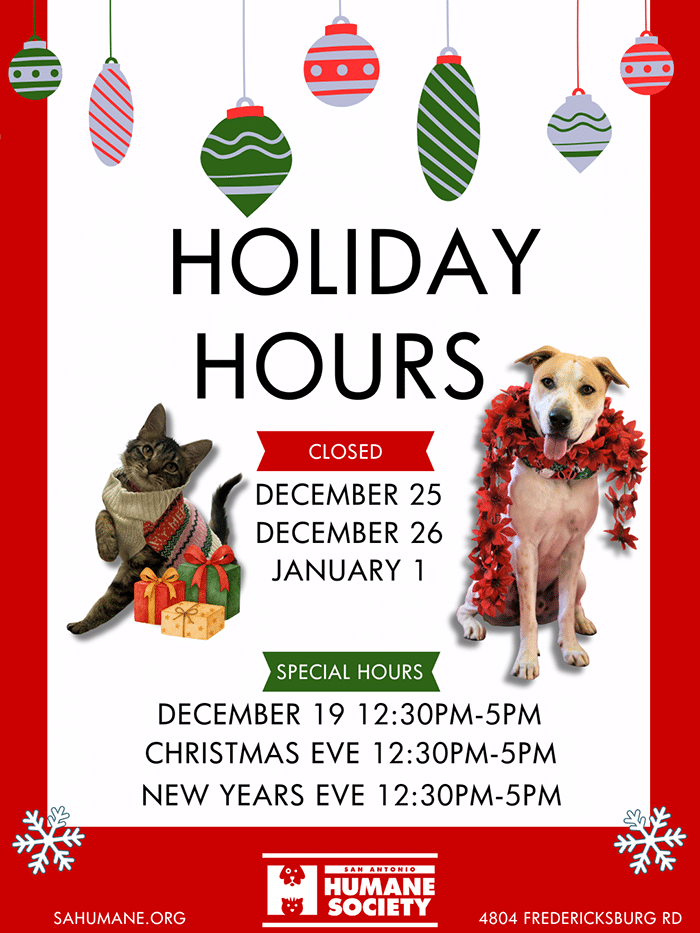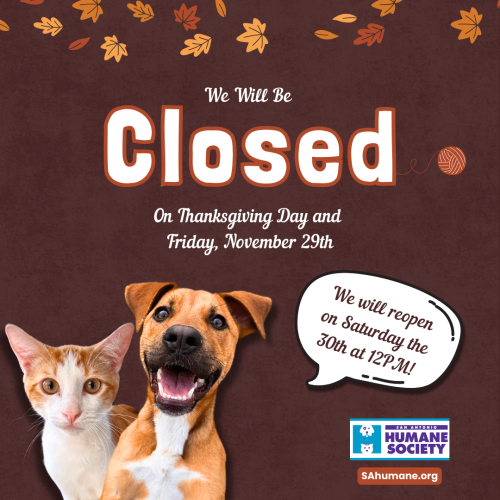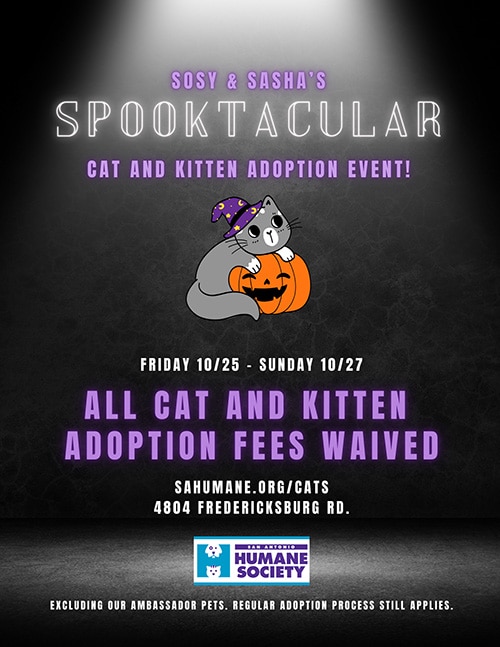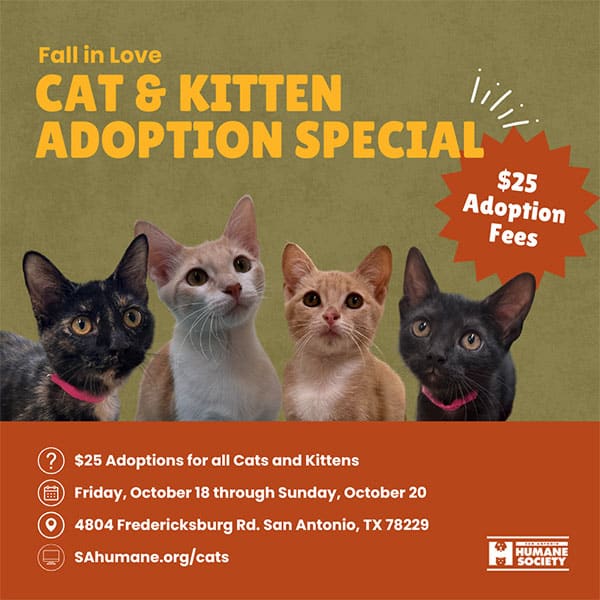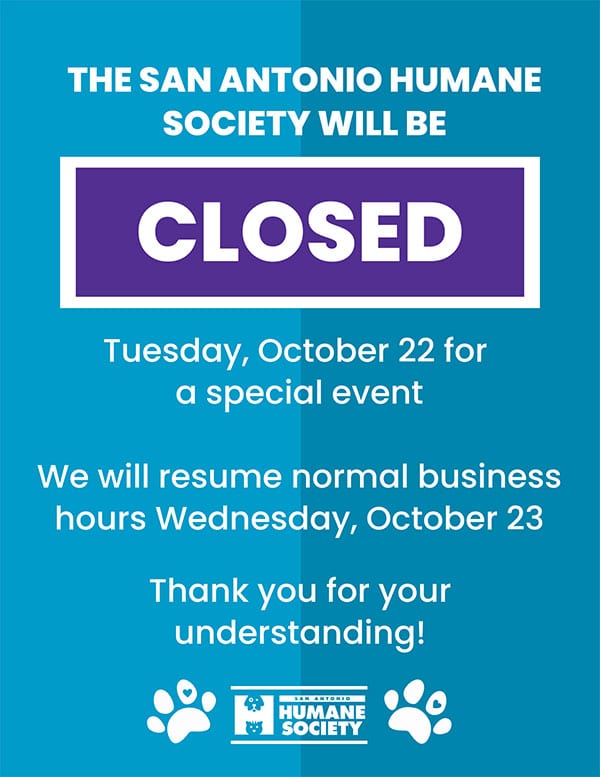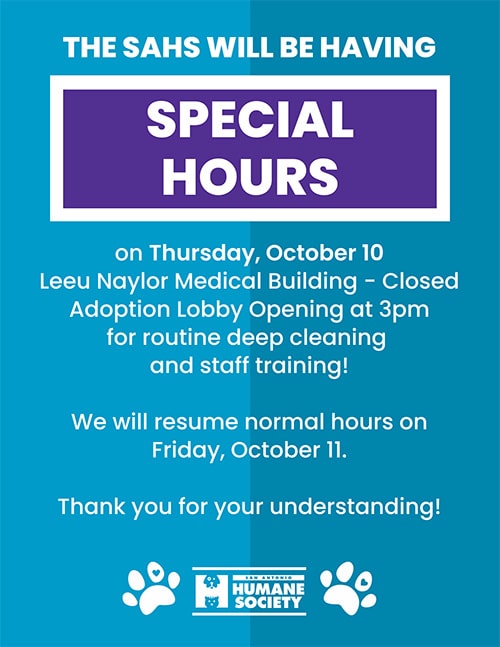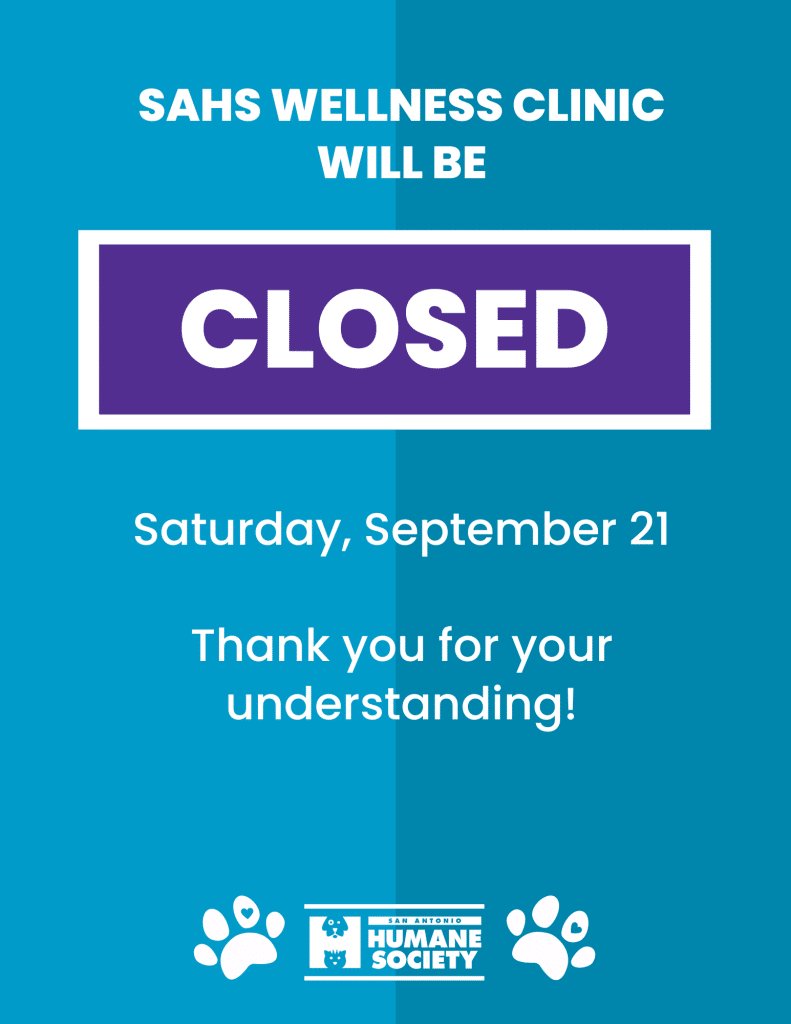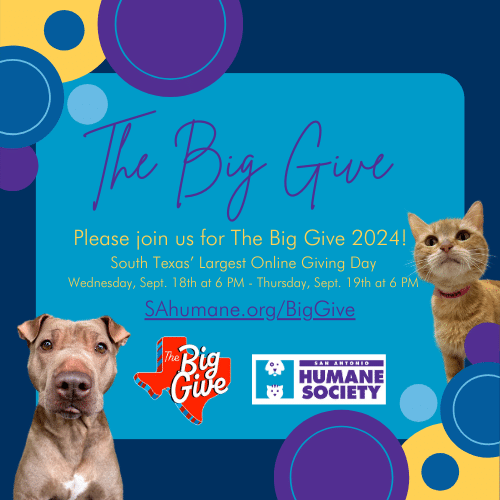Typically, the Thanksgiving holiday is a time where families gather for fun and lots of scrumptious treats. With this in mind, please remember that this can be a hectic and overwhelming time in your pet’s life.
SAHS Chief Veterinarian, answers your most popular questions on how to keep your pets safe and sound this Thanksgiving.
Q: It’s Thanksgiving and my pet is part of the family, what can he eat to join in on the feast with us?
A: The following are safe to give your pet to include them in the festivities:
1. Turkey meat – (cooked, not including bones, which we will cover later)
2. Potatoes (sweet and white)
3. Apples
4. Green Beans
5. Peas
6. Pumpkin (not pie!)
Please keep in mind that any change to your pet’s diet may result in intestinal upset and/or loose stool. Although people may overeat on Thanksgiving, only feed your dog a limited portion based on their size.
Q: Are there any things my pet should definitely NOT eat?
A: Yes
1. Bones (Turkey, Ham, etc)
Bones, especially poultry bones, can shatter an have sharp points which can puncture internal organs as they pass through the digestive tract. They can also become lodged and form an obstruction.
2. Turkey skin, gravy + Ham
These can have extra fats and calories that are more prone to causing GI upset and pancreatitis
3. Stuffing
Stuffing, while mostly bread, can have spices and onions that are harmful to animals
4. Raisins or Grapes
These are extremely toxic to animals and can lead to irreversible kidney damage
5. Chocolate, Cookies, Pies, Sweets
These are typically too rich and can cause diarrhea and stomach upset very quickly. Chocolate, of course, contains theobromine which can be deadly to small dogs and cats
6. Onions, Scallions, Garlic
These are toxic to dogs and cats
7. Alcoholic beverages
Q: My dog got into the trash or onto the table and ate a lot of food! When do I need to worry?
A: Dogs, like people, sometimes don’t know when to stop eating. Food that looks and smells good can overwhelm their ability to stop gorging. Because wolves did not know when their next meal would be they ate as much as they could fit in their bellies when they did have a kill, dogs consequently are not great at gauging how much they should eat meal to meal. This means that when presented with a feast, they could literally eat themselves ill.
If your dog overeats, expect them to have digestional upset (ie diarrhea and vomiting) and look bloated and miserable. You should seek veterinary help if any of the following symptoms appear:
1. Vomiting or diarrhea that lasts beyond 24hrs or is explosive in nature or contains blood. This could indicate a more severe problem like pancreatitis or HGE (hemorrhagic gastroenteritis).
2. Your dog becomes lethargic. While you might see some signs of lethargy after an excessive meal with lots of sleeping, your pet should not seem depressed. Depression could be a sign of pain or pancreatitis and veterinary help is a must.
3. Your pet can’t get comfortable, groans, seems painful, or pants excessively. It is true that overeating on its own can cause your pet to become uncomfortable, causing these symptoms, but this should go away within an hour as the stomach expands to accommodate and process the food. Pain symptoms that extend beyond that or get worse might indicate a more severe problem like bloat or GDV (stomach twisting) which are emergency situations.
Q: My dog ate something off the table and I’m not sure if it’s toxic or not. My regular vet is closed and I don’t know if I should take him to the emergency clinic. What should I do?
A: In case of ingestion of human medication or food, there is a fantastic website that you can visit with resources and a number to call. They have an alphabetical list of poisons, emergency instructions, and a 24/7 hotline. https://www.petpoisonhelpline.com/ (855) 764-7661.
Overall the holidays are a fun time and including the pets can be fun for the whole family. Please remember that their care is in your hands and think responsibly when you celebrate with your four-legged family!


